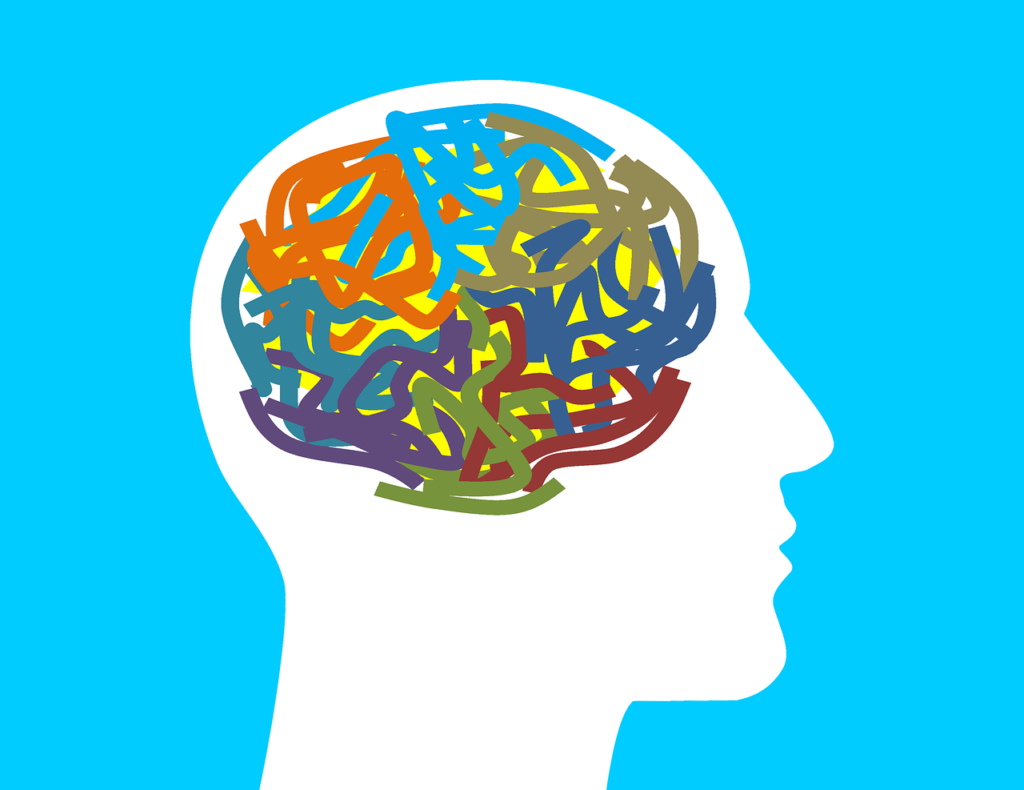My Experience with Religious OCD
One evening when I was about 10 years old, I came home and performed my salah as I usually would after school. This time, however, something was different. As soon as I finished, I felt an overwhelming compulsion to repeat it. It was unlike anything I had ever experienced before. It felt as though if I didn’t repeat it, I would never find peace—like there was an itch in my soul that wouldn’t find relief unless I repeated my salah. That was the beginning of what I would later learn was obsessive-compulsive disorder (OCD).
Initially, it infiltrated many aspects of my daily life. I remember one time walking on squared pavements and feeling compelled to retrace my steps if my feet didn’t land perfectly within each square without touching the lines. I fought the urge, but eventually gave in, running back to redo my steps to satisfy this strange, overwhelming need. Fortunately, this type of manifestation of OCD eventually faded. Unfortunately, my OCD found it’s home in something that was meant to give me solace—my religious practices.
It truly began to take over my acts of worship. I would spend hours repeating my wudhu (ablution), not able to ever feel it was satisfactory enough. When I would finally finish wudhu, I spent long periods of time trying to begin my salah (prayer). When I finally started began my salah, I felt a constant dread, knowing I would feel compelled to restart. And even if I completed the prayer, I feared the relentless urge to repeat it. It was crippling, and my heart ached from the struggle.

Now, nearly 20 years since the onset of my religious OCD, my symptoms have improved significantly, though fragments of the disorder still remain. Looking back, there are so many things I wish I could tell my younger self. That little girl, who thought she was losing her mind, could have been guided through the storm if only she had known what was happening and how to navigate it.
Here are 5 things I wish I had known earlier about religious OCD:
1. What religious OCD was.
I didn’t know what religious OCD was. I thought I was just losing my mind and I was the one to blame. I didn’t know that what I was experiencing had a name. Religious OCD is when a person experiences intrusive and obsessive thoughts about their religious practices, beliefs, or relationship with Allah. These thoughts can lead to intense anxiety and compel the person to engage in repetitive rituals or behaviours to seek reassurance or feel certain they are practicing Islam “correctly.”
A Muslim with Religious OCD may:
- Constantly doubt their intentions (niyyah) or worry that their faith (iman) is not sincere enough.
- Obsess over the correctness of their prayers (salah), leading them to repeat parts or entire prayers multiple times.
- Question the purity (taharah) of their body, clothes, or place of worship, resulting in excessive washing (wudu or ghusl).
- Fear that they have unintentionally committed blasphemy or kufr (disbelief), even when they have not.
2. Religious OCD is acknowledged in the Quran and Sunnah.
In Islam, Religious OCD, often associated with Waswasah (whispers of Shaytan), is recognised in both the Qur’an and Sunnah as a spiritual challenge. While the specific term “OCD” is not mentioned, the Qur’an and Sunnah offer guidance on how to manage obsessive thoughts and behaviours related to religious practices.
Waswasah in the Qur’an:
The Qur’an acknowledges the existence of waswas, or intrusive thoughts, particularly from Shaytan (Satan), whose aim is to create doubt and anxiety in a believer’s heart. These whispers often manifest as doubts about religious matters, leading to unnecessary fear or compulsion to repeat actions.
“From the evil of the whisperer who withdraws. Who whispers in the hearts of mankind.”
Surah An-Nas (114:4-5)
This verse speaks about the evil whispers of Shaytan that cause doubt in the minds of believers. It acknowledges that Satan aims to confuse and mislead people, often in their religious matters, encouraging unnecessary fear or anxiety.
Sunnah on Managing Waswasah and Religious OCD:
The Prophet Muhammad (ﷺ) offered practical and spiritual advice for dealing with waswas and obsessive thoughts in matters of faith, including how to avoid falling into excessive worry about religious practices.
Hadith on Doubt in Wudu (Ablution) and Salah (Prayer):
The Prophet Muhammad (ﷺ) said, “If any one of you feels something in his stomach and is not sure whether something came out of him or not, he should not leave the mosque until he hears a sound or smells something.” (Sahih Muslim)
This Hadith teaches that a person should not act on doubts in religious practices like wudu (ablution). The Prophet (ﷺ) discouraged overthinking and unnecessary repetition, which is a common behaviour in Religious OCD.
Hadith on Doubts in Faith:
The Prophet (ﷺ) said, “Shaytan comes to one of you and says, ‘Who created such-and-such? Who created such-and-such?’ until he says, ‘Who created your Lord?’ When he reaches this stage, let him seek refuge with Allah and stop such thoughts.” (Sahih Muslim)
This Hadith directly addresses intrusive thoughts related to faith, advising believers to seek refuge in Allah and ignore obsessive doubts. It emphasizes that such doubts are from Shaytan and should not be entertained.
Hadith on Excessiveness in Religion:
The Prophet Muhammad (ﷺ) said, “Beware of going to extremes in religion, for those who came before you were destroyed by going to extremes in religion.” (Sunan Ibn Majah)
This hadith warns against being overly strict or obsessive in religious practice, a principle relevant to those experiencing Religious OCD, who may excessively repeat prayers, wudu, or other rituals in pursuit of perfection.
3. That I wasn’t alone and many people suffered from religious OCD.
At the time of the onset of my religious OCD I didn’t think anyone else could possibly be experiencing something similar. Little did I know that many people suffer from religious OCD. Learning this was both surprising and comforting, knowing that I wasn’t alone in dealing with these overwhelming thoughts.
4. That my religious OCD was likely a trauma response.
There was a lot of heavy things happening in my life at this time, things that were greatly affecting my mental health. My religious OCD was likely a response to the trauma that was going on in my life.
The Mayo Clinic discusses how traumatic or stressful life events can increase the risk of developing OCD, including religious OCD. They point out that while OCD is often influenced by biological factors, environmental triggers like trauma can worsen symptoms.
5. That Allah had not forsaken me due to my religious OCD.
I felt truly far from Allah at the height of my religious OCD. My religious duties became a huge burden and I dreaded them so much. I subconsciously felt that as I did not entirely find the solace in religious rituals that was expected, that this was a sign that Allah maybe didn’t care for me or my efforts to come closer to Him.
I would later learn that any inclination our heart has to connect with Allah, return to him or fulfil our duties to Him is a sign of His love for us.
Conclusion
In reflecting on my experience with religious OCD, I have realised that knowledge is power. If you are experiencing any strange and sustained changes to your behaviour, thoughts or mood look into it, research, discuss it with someone you trust and make dua about it. May Allah grant us sound minds, guide us and relieve us of the burdens of the trauma we may be carrying. Ameen

